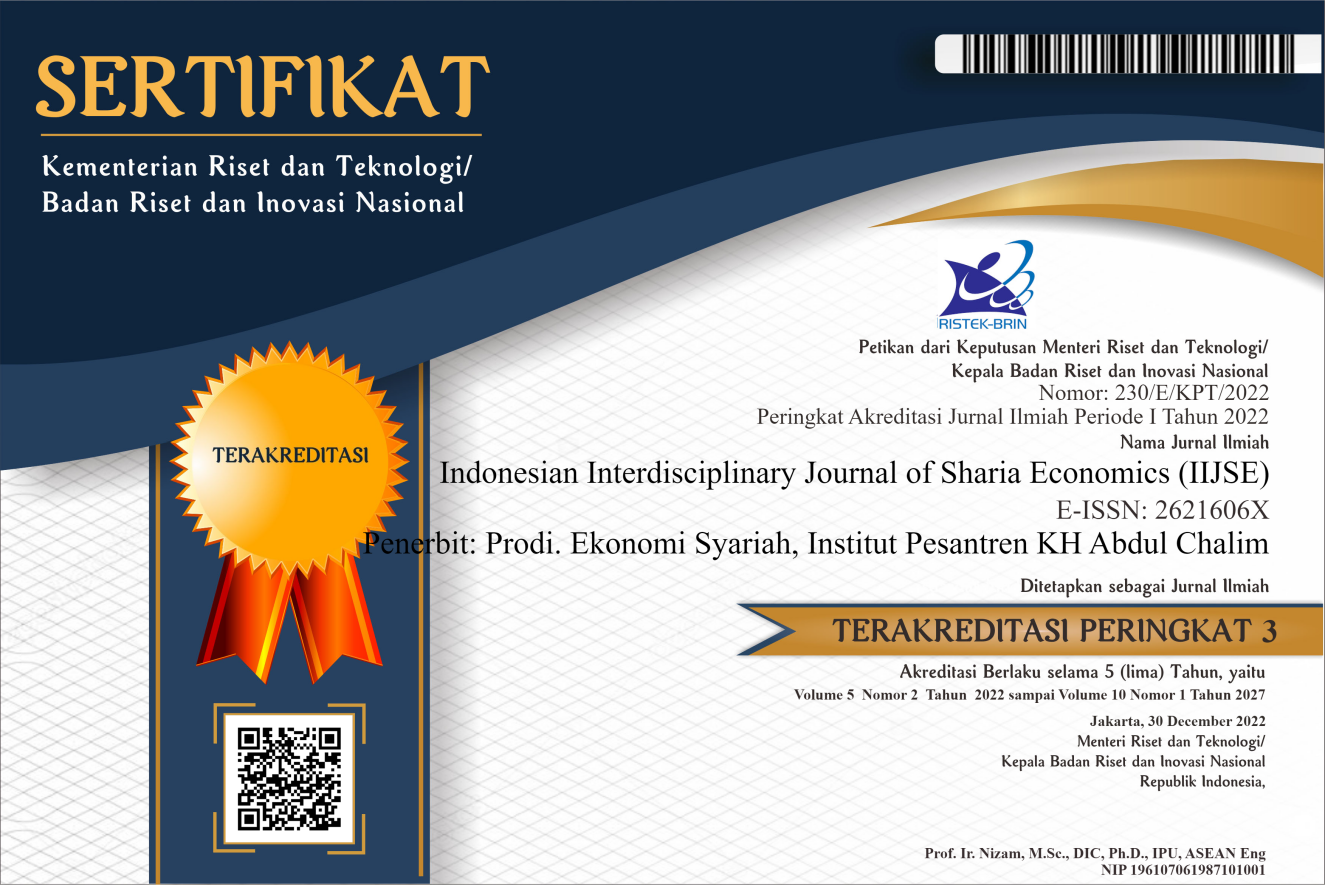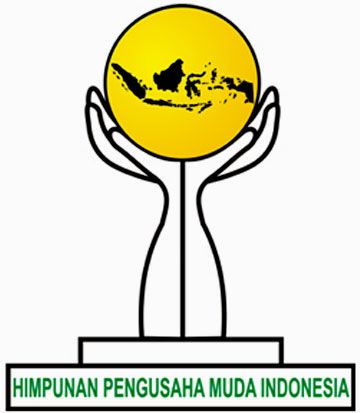Analysis of Determinants Driving Interest Student Accountancy for Role in World Businessman
Abstract
Commencing a firm or engaging in entrepreneurship is a means for individuals to generate income, so bolstering a nation's economy and employment opportunities. This study sought to examine the influence of motivation, environment, social media, digital marketing, and love of money on entrepreneurial inclinations. 973 alumni graduated in the years 2020 and 2021. This study employed a qualitative research approach, gathering data through a questionnaire administered via Google Forms. The data were examined using the purposive sampling technique based on the Slobin formula. The influence of motivation on the entrepreneurial aspirations of students is significant. The environment plays a significant role in shaping the amount of interest in entrepreneurship. Social media has a significant impact on the entrepreneurial aspirations of students. Digital marketing has a big impact on students' entrepreneurial interests. An individual's level of interest in entrepreneurship can be greatly influenced by their strong desire for riches.
Downloads
References
Ahimbisibwe, G. M., Ngoma, M., Nabatanzi-Muyimba, A. K., & Kabagambe, L. B. (2023). Entrepreneurial mindset and SME internationalization in Uganda: The mediating role of international networking. Review of International Business and Strategy, 33(4), 669–690.
Allah Pitchay, A., Sukmana, R., Ratnasari, R. T., & Abd Jalil, M. I. (2022). A study of cash waqf contribution between millennials of Malaysia and Indonesia. International Journal of Islamic and Middle Eastern Finance and Management, 16(4), 802–818. https://doi.org/10.1108/IMEFM-01-2022-0034
Amiri, A. M., Kushwaha, B. P., & Singh, R. (2023). Visualisation of global research trends and future research directions of digital marketing in small and medium enterprises using bibliometric analysis. Journal of Small Business and Enterprise Development, 30(3), 621–641.
Bruce, E., Shurong, Z., Ying, D., Yaqi, M., Amoah, J., & Egala, S. B. (2023). The Effect of Digital Marketing Adoption on SMEs Sustainable Growth: Empirical Evidence from Ghana. Sustainability, 15(6), Article 6. https://doi.org/10.3390/su15064760
Cao, J., Qiu, H., & Morrison, A. M. (2023). Self-identity matters: An extended theory of planned behavior to decode tourists’ waste sorting intentions. International Journal of Environmental Research and Public Health, 20(6), 5099.
Chan, C. K. Y. (2023). A comprehensive AI policy education framework for university teaching and learning. International Journal of Educational Technology in Higher Education, 20(1), 38.
Endrawati, T., Bangkara, B., Irdiana, S., Antoni, A., & Siregar, A. (2022). Challenge and Opportunity of Marketing Digital-Based for Business Owners During Pandemic in Indonesia. Indonesian Interdisciplinary Journal of Sharia Economics (IIJSE), 5(2), 653-671. https://doi.org/10.31538/iijse.v5i2.2473
Ferreira, J. J., Fernandes, C. I., Veiga, P. M., & Dooley, L. (2023). The effects of entrepreneurial ecosystems, knowledge management capabilities, and knowledge spillovers on international open innovation. R&D Management, 53(2), 322–338.
Gutierrez-Serrano, G., Romo, L. F., & Chagolla, D. (2023). Latina first-generation college students’ motivation to persist: An attribution theory and self-determination theory perspective. Journal of Latinos and Education, 22(5), 2164–2177.
Halizah, S. N., & Darmawan, D. (2023). Development Entrepreneurship Intention as an Effort to Improve the Level of the Consumer Household Economy. Bulletin of Science, Technology and Society, 2(1), 21–25.
Khoa, B. T., Hung, B. P., & Hejsalem-Brahmi, M. (2023). Qualitative research in social sciences: Data collection, data analysis and report writing. International Journal of Public Sector Performance Management, 12(1–2), 187–209. https://doi.org/10.1504/IJPSPM.2023.132247
Mahama, I., Yusuf Dramanu, B., & Asamoah-Gyimah, K. (2023). Predictive abilities of curiosity, creativity, and motivation on academic performance of high school students in Ghana. Education Research International, 2023.
Mahirullah, Husna, S. M., & Adriani, F. (2023). Analysis of the Application and Correlation of the Murder Type Collaborative Learning Model on Student Learning Outcomes at Senior High School Jambi. Journal Evaluation in Education (JEE), 4(1), Article 1. https://doi.org/10.37251/jee.v4i1.293
Nurdin, A., Samad, S. A. A., Samad, M., & Fakrurrazi, F. (2023). Government Policy Regarding Education in Indonesia: Analysis of Competence-Based Curriculum, Educational Unit Level Curriculum, and Curriculum 2013. Journal of Governance and Social Policy, 4(1), 139–155.
Ritala, P. (2024). Grand challenges and platform ecosystems: Scaling solutions for wicked ecological and societal problems. Journal of Product Innovation Management, 41(2), 168–183.
Sagar, G., Anand, B., Perumalla Varalaxmi, A. S., & Raj, S. (2023). The role of entrepreneurship in economic growth and development. Journal of Survey in Fisheries Sciences, 10(1S), 5940–5955.
Taboroši, S., Rajković, J., Stojanović, E. T., Berber, N., Poštin, J., Bešić, C., & Nikolić, M. (2023). Can Machiavellianism and Money Intentions Influence Entrepreneurial Intention? Organizacija, 56(4), 297–308. https://doi.org/10.2478/orga-2023-0020
Waheed, R., Sarwar, S., & Alsaggaf, M. I. (2023). Relevance of energy, green and blue factors to achieve sustainable economic growth: Empirical study of Saudi Arabia. Technological Forecasting and Social Change, 187, 122184.
Wahyuni, S., Hafiz, M., & Pradesyah, R. (2023). The Effect of Contribution, Role, and Capital on MSMEs Business Development in Islamic Banks with Human Resources Quality as A Moderation Variable. Indonesian Interdisciplinary Journal of Sharia Economics (IIJSE), 6(1), 222-231. https://doi.org/10.31538/iijse.v6i1.3044
Wei, W., & Duan, J. (2023). How do entrepreneurial activities at different levels promote business growth: A review and research agenda. Chinese Management Studies.
Willy Cahyadi, -. (2023). The influence of transactional leadership style and transformational on organizational commitment with compensation as a moderating variable. JPPI (Jurnal Penelitian Pendidikan Indonesia), 9(2), Article 2. https://jurnal.iicet.org/index.php/jppi
Xie, S., & Madni, G. R. (2023). Impact of social media on young generation’s green consumption behavior through subjective norms and perceived green value. Sustainability, 15(4), 3739.
Yan, J., Huang, T., & Xiao, Y. (2023). Assessing the impact of entrepreneurial education activity on entrepreneurial intention and behavior: Role of behavioral entrepreneurial mindset. Environmental Science and Pollution Research, 30(10), 26292–26307.
Yu, B., & Leung, Y. W. (2024). Establishing ties or strengthening friendships? Students’ use of online social networks in intercultural friendship development. Information Technology & People, 37(2), 815–834.
Copyright (c) 2024 Rendra Bagus Saputra, Lintang Kurniawati

This work is licensed under a Creative Commons Attribution-ShareAlike 4.0 International License.
Authors who publish with this journal agree to the following terms:
- Authors retain copyright and grant the journal right of first publication with the work simultaneously licensed under a Creative Commons Attribution License that allows others to share the work with an acknowledgment of the work's authorship and initial publication in this journal.
- Authors are able to enter into separate, additional contractual arrangements for the non-exclusive distribution of the journal's published version of the work (e.g., post it to an institutional repository or publish it in a book), with an acknowledgment of its initial publication in this journal.
- Authors are permitted and encouraged to post their work online (e.g., in institutional repositories or on their website) prior to and during the submission process, as it can lead to productive exchanges, as well as earlier and greater citation of published work.


















